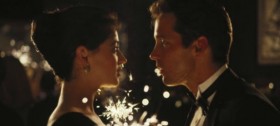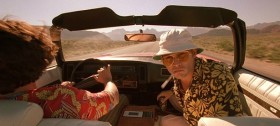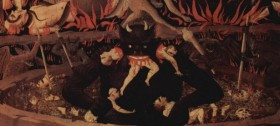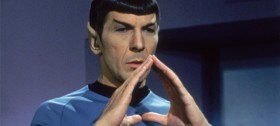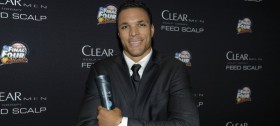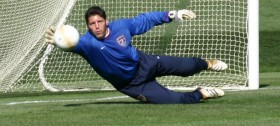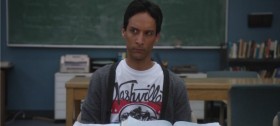Interview with Andrew Jenks, Creator of MTV’s World of Jenks
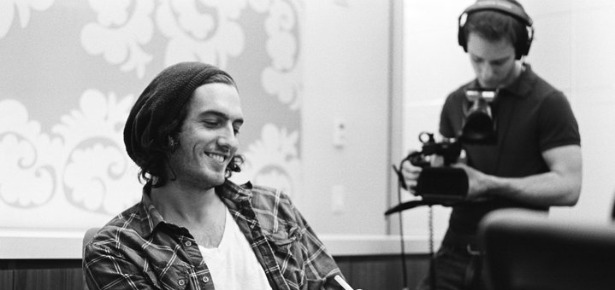
Andrew Jenks’ new documentary show “World of Jenks” premiered on MTV last night, and the series promises to be an interesting addition to the network’s lineup. Jenks, a 24-year-old, award-winning filmmaker, has gotten free reign from the network to create a unique series that shadows different individuals in order to showcase young, unique perspectives from all walks of life.
This idea of showcasing the individual reference frames of different types of people is something that Jenks is quite familiar with. When he was 18, Jenks checked into a nursing home and filmed his experiences. The resulting documentary, “Andrew Jenks, Room 335” aired on HBO in 2008 and was well received by critics and audiences alike.
After earning some acclaim cred for his directing skills, Jenks convinced ESPN to finance his second film “The Zen of Bobby V.” Jenks followed former Major League Baseball manager Bobby Valentine for eight months as he coached the 2007 Chiba Lotte Marines team in Japan. The film was an official selection at the 2008 Tribeca Film Festival and earned the young director more positive reviews.
In his new series, World of Jenks, Andrew Jenks spends one week experiencing life through someone else’s eyes. For each episode, Jenks moves in with a new stranger and captures their individual perspective on the world. The show will include the viewpoints of a hit rapper, an NFL cheerleader, a homeless girl, a young man with autism, an MMA cage fighter, an animal rescuer and other interesting subjects.
We had the chance to talk to Jenks about his previous films and the challenges the new series presents, including getting choked and slapped by rapper Maino on camera.
CS: So how did you first get in to filmmaking?
AJ: Probably when I was back in fourth or fifth grade. Because of my Dad’s work we travelled quite a bit, and there were really some places where people weren’t speaking English. And so we had this big bulky VHS camera that no one really used, and I would just walk around and film stuff and narrate while I was filming. You know there were silly little things happening I can’t remember what they were but the camera – not to sound cheesy – but the camera kind of became my best friend and I think that’s the root where this all started I would imagine.
CS: So how did you originally come up with the idea for “Room 335”?
AJ: I was in college, freshmen year dormitory with 300 strangers essentially. Everyone is looking towards the future and what’s next and what they’re majoring in and blah blah blah. All that was going on and my grandfather was living in nursing home facing dementia, also living with 300 strangers. And so I just kept thinking, you know I was close with him and that was kind of a tough time and I just kept thinking “what would it be like if a 19 year old moved into a nursing home?” These are the people that have lived life the longest so why not seek their advice and see what it’s like to be on the other side of the spectrum. So that’s kind of what inspired that documentary.
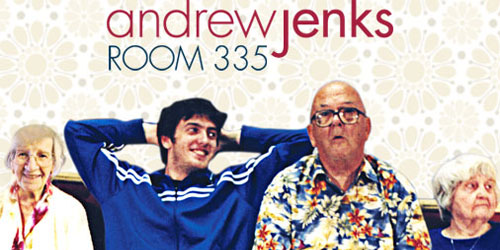
CS: Were you surprised at all by the whole experience? Was it what you thought it would be or were there any big surprises there?
AJ: Yeah, I was shocked. I went in thinking we were going to make a movie about old people and I left with some incredible friends, Tammy and Bill and Livy, just unbelievable people that have a lot to provide for society. I thought it was sad that they were put away in a corner in these little nursing homes and I was just really happy that we were able to document and capture their lives and then somehow showcase it all over the world which was definitely awesome. And then there were also the moments where I witnessed a friend pass away and we were in the hospital room with her, there were some dark dark moments as well.
CS: So how did you go from that to “The Zen of Bobby V” where you spent eight months in Japan?
AJ: I just love that story. I just always wanted – ever since he moved to Japan it was really a dream, I never thought I would actually do it. I always just thought it would be cool to make a documentary about an American-based home manager who in 2005 won the Japan Series and then became a demigod and all of a sudden had a burger named after him, a street named after him, and a beer named after him. It was like “Mr. Baseball” meets “Lost In Translation” and I just thought it was an incredible subject. Luckily because of “Room 335”, and HBO picking it up, I was able to get in the doors of ESPN and pitch them the idea and to meet Bobby Valentine and somehow that became a reality which is still – God I can’t believe – it’s the weirdest thing that it even happened.
CS: Was Bobby cool with the whole process? Did you guys build a relationship when you were just talking about his experiences?
AJ: Bobby – was he cool you mean at the beginning when we pitched to do it?
CS: Yeah, and just throughout.
AJ: He was really skeptical. He was – first off he just didn’t think it could be done because a lot of American – the media access here is different. To follow someone around like you would in a normal documentary doesn’t really exist, at least in the baseball culture. The media is very restricted so he had pretty big reservations about doing it. Also his big thing was that we had to be there for all eight months. In Japan you have to show that you’re working hard, so once he told me that I knew that we just couldn’t be there for a month and then another couple months and then come back at the end of the season. I realized that we’d have to be there for all eight months. And that was rather a tough thing to convince ESPN on, to let us be there the entire time. But it terms of Bobby’s reservations it was mainly making sure that we would adapt to the baseball culture, the Japanese culture, and not stick out like a sore thumb. Bobby can be very – I don’t know if you know Bobby, but he can be very clear when he’s trying to make a point.
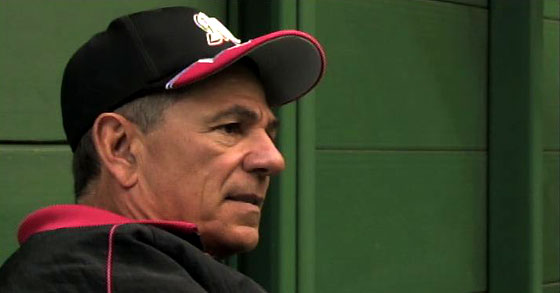
CS: (laughs) How does the baseball culture differ? What are some primary things that you saw that were totally different than what we do here?
AJ: Well,Manny Ramirez wouldn’t last a day in Japan.
CS: (laughs)
AJ: I mean the work ethic there in general is just – it’s been well documented. I remember there’s an American reporter who I befriended over there and he said “if you’re not busy at the office you have to at least look like you’re really stressed out and there’s a lot on your mind and you are really busy otherwise people are going to think you’re lazy.” And that translates into the baseball world as well over there where you need to be practicing eight hours a day. If there’s no game, you have to be at the field four hours early. You should be at batting practice after the game as well. The work ethic there is just unbelievable to the point where a lot of Americans come to Japan to play and think that it’s silly and overdone and that you end up injuring yourself, which is debatable.
CS: Gotcha.
AJ: So that would be one of the big differences in terms of the actual game in Japan. I mean there’s a million – I could go on about that, there’s a million differences.
CS: Gotcha.
AJ: Crazy. Have you ever seen Japanese baseball? It’s wild. The fans are like European soccer fans, it’s nuts.
CS: Oh really? No I haven’t seen a live game.
AJ: Oh my God, it’s the number one sport in Japan. It’s the only country where baseball is the number one sport, I mean they live and breathe it over there it’s like crazy town. I don’t know why I just said crazy town, it’s not crazy town, it’s just crazy.
CS: (laughs)
AJ: I really don’t know why I said that.
CS: Andrew, what are some of your favorite films and favorite film makers?
AJ: I don’t want to be pretentious, but I love periods in film when people were doing things that others weren’t doing and so I’m very attracted to the – I’ve just been watching a lot of French New Wave stuff recently. So like François Truffaut and like “400 Blows” and Godard and his movies and “Shoot the Piano Player.” You know that French New Wave stuff I’m really digging right now so I guess that. I love “Children of Men” it’s probably one of my favorite movies, that movie just scares the shit out of me.
CS: That was a great movie, yeah. I have a lot of friends who hate that movie and I’m like, oh come on man!
AJ: How can you hate that movie?
CS: Yeah exactly. I mean-
AJ: I’ve never heard of anyone hating that movie.
CS: Really? I must have wack friends then.
AJ: You have offensive friends (laughs).
CS: I do. But people just think it’s too much of a downer, but I love it. Just the look and feel and Clive Owen, it’s just great.
AJ: Oh yeah the concept, and they make it feel real. When you think about it it’s such a freaking absurd idea – whoa women can’t get pregnant? It’s almost ridiculous, but then they pulled it off. I remember I was watching it one day and I had to literally go outside twice just to make sure the world was still in order, it was freaking me out. I mean that movie, as you can tell it gets to me.
CS: Yeah, totally. Baby Diego! (laughs)
AJ: Yeah, that’s it.
CS: So with the World of Jenks, you’re following around a bunch of different people and I know you’ve kind of made the distinction between filmmaking and reality TV, that you don’t necessarily see it as something that follows that reality formula per se. I just wanted to ask you, what is that distinction? Is there a fine line? Is there a clear delineation? Like right now we’re following someone around, we’re clearly making a film, this isn’t some reality TV contest. Do you get offended when someone refers to your upcoming show as something that would be reality TV?
AJ: I wouldn’t say I get offended, but it definitely irks me inside and my stomach rumbles and I’m like “oh man, are they really calling this a reality show?” Just because I think – and there’s nothing wrong with it – I just want to be a filmmaker down the road and I want to make movies and it scares me sometimes. Because sometimes reality TV can have a negative connotation to filmmakers and so I get a little bit worried about that sometimes. But at the end of the day MTV is giving me total creative control and I’m very proud of every episode that we’ve done. So if people want to call it reality television that’s fine, I understand that it is I guess. It’s real people doing real things and that’s what reality TV is supposed to be. It’s on television so I can’t call it a movie and I can’t call it a film.
CS: (laughs)
AJ: So if anything I like to consider them short films, but there are still outbreaks, there are still commercials, so it is what it is.
CS: So in all your films you kind of have this theme where you try to understand different people’s frame of reference and someone else’s reality. What is it about your method of storytelling that always wants to get that authentic view of what it’s like to see the world through someone else’s eyes?
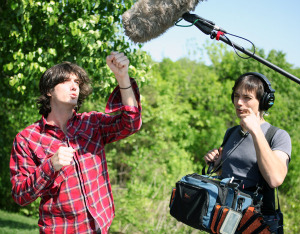 AJ: That’s good question, I’ve never heard that. I think just – this might be a little dark but as a kid I moved around a lot and I was a lot of times in classrooms where people were speaking in a language that I didn’t understand and that can be a pretty lonely place to be. So I think I just always had a curiosity about “gee I wonder what that person’s thinking? I wonder what that person’s doing?” Just because I traveled so much and I’ve always just kind of been an observer. I think that curiosity has always been with me ever since I moved to Nepal when I was two years old so I feel like it’s deep down in my DNA. I think so, I don’t know, does that make sense? What do you think?
AJ: That’s good question, I’ve never heard that. I think just – this might be a little dark but as a kid I moved around a lot and I was a lot of times in classrooms where people were speaking in a language that I didn’t understand and that can be a pretty lonely place to be. So I think I just always had a curiosity about “gee I wonder what that person’s thinking? I wonder what that person’s doing?” Just because I traveled so much and I’ve always just kind of been an observer. I think that curiosity has always been with me ever since I moved to Nepal when I was two years old so I feel like it’s deep down in my DNA. I think so, I don’t know, does that make sense? What do you think?
CS: That makes sense, I see where you come from. So to go back to the authenticity point; I know you’re trying to get as close as you can to someone else’s reference frame, but when you’re actually making a film and you have the crew following someone around, how do you break down that veil that people would naturally throw up if they had a camera following them around and really try to get into engaging conversation in more of a personalized view of what their world is like but with the constant knowledge that they know they’re being filmed? How do you get around that?
AJ: Well what we do is we make them forget it. And it’s like what Maino said, after a few days of us hanging out, he was talking to someone on the phone and they said what you just said and he goes “well you know what the cameras are to me? They’re invisible.”
CS: (laughs)
AJ: And it’s just like – you have to watch that line because Maino is funny – but you know we take a fly-on-the-wall approach where we have times that our characters are wirelessly miked, our subjects I should say are wirelessly miked, and we make sure that our cameras are not in your face. We try and keep them at a distance until you’re comfortable. Usually by the second or third day I’ve heard every single subject say “damn I forgot that we’re filming.” And I think another big part of it also is that I am in it as well and by me being in it, I’m also directing it as the same time and so I think there’s a fourth wall that’s broken and they’re able to just totally trust myself and the crew. It’s almost like the crew is part of the experience for them. With every subject, when we’re done shooting they don’t just hug me, they hug everyone that works on the show. I’m also in front of the camera and so that I think – you need the subject to trust you to really go to those places and to have those conversations that you’re talking about. And so I think that by me being in front of the camera and being in that vulnerable place where you’re on camera, I think that makes them trust me more than if I were behind the camera which is what I probably prefer to do. If I were behind the camera I’d be in a safe zone, I wouldn’t be out there like they are so I feel like we’re both part of the interview as well.
CS: Now when you prepare to spend time with different types of people – MMA cage fighter, young homeless woman, pro cheerleader – is there a certain degree of preparation that you do so that you can have these engaging conversations or is it just spontaneous, however it develops from the situation you find yourself in?
AJ: I have an editor that cuts down. We film them. We film the long interview with them and then I have an editor cut it down to about eight minutes and I watch that till I get the gist and the basics. Also that’s how I approve of the subject as well. So that’s how much I know going into it and then from there my team takes over where they figure out the details of their lives and where we’ll be going so that we just know what we’re doing when we go out on the road. So I only base it on that five to 12 minute casting tape that one of our producers film. And they’ll give you dozens of examples, like for the MMA fighters, there was probably a dozen fighters that we looked at and there was just this one guy that stood out totally and that’s who we went with. And that was all I knew about him was those eight minutes.
CS: And so you get the final call on choosing the subjects.
AJ: Oh yeah definitely. I mean I definitely have to get them approved by the higher ups, but MTV’s been, and I’m not just saying this, they’ve been great. I think I’ve picked out every subject, myself and my team we’ve just picked out every subject. It’s not like MTV says you’ve got to do this or you’ve got to do that. People think that for some reason but it’s never happened at all.
CS: So I’ve read before that you kind of view this project as a forum for showcasing voices that aren’t typically heard. You’re looking at this as sort of telling stories to your generation and showing people of a certain age what it’s like to have these different experiences. Now what is it about – is it just because you’re a young filmmaker? Is it the fact that young voices don’t really have a lot of forums? How does this project really help you speak to your specific age group?
AJ: Well I don’t know any other outlet that exists that’s bigger than MTV that reaches my generation and I don’t know of any other show that exists that is able to capture unique individuals, young people, and do so in every episode with a totally different person who lives in a totally different world and for me that’s just a perfect match.
CS: Okay. Thanks for your time Andrew. I did want to ask just real quick, what was it like when Maino gave you the choke-and-slap? I don’t know if that was a freaky experience or what but any quick words on that?
AJ: Well you know he just has this thing where he sticks up his middle finger and I was challenging him on why he does that when he takes photos. If he’s an inspiration to all these kids, why does he do that? And I think I just judged him too quickly because he said “you need to come to where I’m from and really understand why I do the things that I do.” And I take responsibility for judging him too quickly and when we went to Bed Sty, where he’s from, I just saw how these people looked up to him. Their jaws dropped and he explained to me that he can’t go out on TV or be on the radio and start acting totally proper and start wearing a suit because then they wouldn’t identify with him. So he still needs to do those things so they know that he’s still the Maino that they grew up with, and I thought that was a really important point. The thing about that fight is it’s not the fight, it’s what came out of the fight that’s important for me.
You can see clips of the show on MTV.com or check out the first episode right here:
Related Posts
| Print article | This entry was posted by Chris Stout on September 14, 2010 at 10:40 am, and is filed under Entertainment. Follow any responses to this post through RSS 2.0. Both comments and pings are currently closed. |
Comments are closed.

